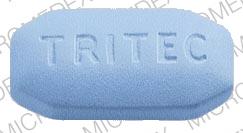Ranitidine bismuth citrate Side Effects
Applies to ranitidine bismuth citrate: oral tablet.
Warning
Ranitidine bismuth citrate was withdrawn from the U.S. market in 1998.
Do not stop taking this medication unless your doctor tells you it is all right to do so, even if you are feeling better. Your symptoms may improve before the infection is completely treated.
Stop taking ranitidine bismuth citrate and seek emergency medical attention if you experience an allergic reaction (difficulty breathing; closing of your throat; swelling of your lips, tongue, or face; or hives).
Other, less serious side effects may be more likely to occur. Continue to take ranitidine bismuth citrate and talk to your doctor if you experience
-
changes in taste;
-
headache or dizziness;
-
diarrhea, nausea, or constipation; or
-
tremor (shaking).
Side effects other than those listed here may also occur. Talk to your doctor about any side effect that seems unusual or that is especially bothersome.
For Healthcare Professionals
Applies to ranitidine bismuth citrate: oral tablet.
General
In general, ranitidine bismuth citrate is well tolerated with minimal adverse effects. The more common side effects may include darkening of the tongue and stools, diarrhea, headache and disturbance of taste. These effects could possibly be due to the addition of clarithromycin.[Ref]
Gastrointestinal
Gastrointestinal side effects have included diarrhea, nausea, vomiting, and constipation in 3% to 8% of patients receiving ranitidine bismuth citrate plus clarithromycin and these side effects appear to be associated primarily to clarithromycin.[Ref]
Nervous system
Nervous system side effects have included headaches, which occurred in approximately 5% of patients during clinical trials.[Ref]
Bismuth salt intoxication has been very rarely linked with neurotoxic symptoms and encephalopathy.[Ref]
Other
Other side effects have included disturbance in taste (10%), sleep disorders (2%), nonspecific chest symptoms (2%) and black tongue and/or stools.[Ref]
The disturbance in taste appears to be primarily related to clarithromycin. Black tongue and/or stools may occur due to colonic conversion of bismuth into bismuth sulfide. Both effects are harmless, and dark stools should not be confused with melena.[Ref]
Dermatologic
Dermatological side effects have included pruritus (3%).[Ref]
More about ranitidine bismuth citrate
- Check interactions
- Compare alternatives
- Dosage information
- During pregnancy
- Drug class: H2 antagonists
Related treatment guides
References
1. Lacey LF, Frazer NM, Keene ON, Smith JT. Comparative pharmacokinetics of bismuth from ranitidine bismuth citrate (GR122311X), a novel anti-ulcerant and tripotassium dicitrato bismuthate (TDB). Eur J Clin Pharmacol. 1994;47:177-80.
2. Product Information. Tritec (ranitidine bismuth citrate). Glaxo Wellcome. 2001;PROD.
Further information
Always consult your healthcare provider to ensure the information displayed on this page applies to your personal circumstances.
Some side effects may not be reported. You may report them to the FDA.

